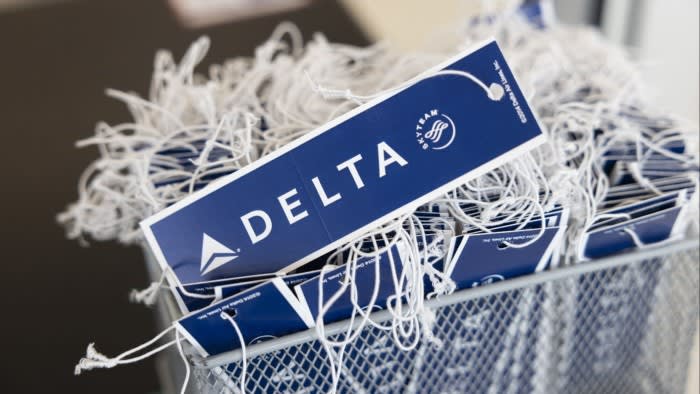Connecticut attorney Jim Asbell would rather pay a larger airfare than worry about additional fees.
Aspel, whose son works for an airline, can travel for free on that carrier. But when he has luggage to check in, he prefers Southwest Airlines, which gives customers two checked bags at a discount on the fee that has become almost ubiquitous in the industry.
He travels about once a month, and has noticed that over the past decade, plane departures have taken longer, as passengers struggle with the oversized luggage they were carrying on board.
“People bring everything but the kitchen sink on board to try to avoid bag fees,” he said. “It's not doing anyone any favors.”
These fees have risen again. Last week, Delta Air Lines raised its first-bag check-in price from $30 to $35. Five U.S. airlines have raised bag fees by $5 in the past two months, starting with Alaska Airlines and JetBlue Airways in January and February, then American Airlines, United Airlines and Delta in a two-week window. Everyone now charges $35 to check their first bag online. Everyone except Delta charges $40 or more to check that bag at the airport.
“They're like lemmings when it comes to this stuff,” said Bill McGee, a senior fellow on aviation and travel at the American Economic Liberties Project, an antitrust think tank.

American, Delta and JetBlue all cited rising industry costs as the motivation for their decision. The aviation industry faces inflation, rising fuel prices and rising labor costs.
“We remain unprofitable since Covid,” JetBlue said. “Although we do not like the fee increase, it is a step we are taking to return our company to profitability and cover the increased costs of baggage transportation.”
Bag fees, imposed by airlines to combat rising fuel prices in 2008, have become an important source of revenue for airlines. US airlines made $6.8 billion of it in 2022, the most recent data available, according to the Bureau of Transportation Statistics. This is more than double what it was a decade ago.
President Joe Biden mentioned travel fees in his State of the Union address, saying his administration proposed having “cable, travel, utility and online ticket sellers tell you the total price upfront so there are no surprises.”
The Department of Transportation is supposed to unveil a rule this spring that would force airlines and ticket agents to disclose bag fees, flight changes, cancellations and family seating on the first page of search results.
McGee said the language of the proposed rule suggests the department could impose a complete ban on the fees airlines charge families to seat an adult next to a child.
The airline industry is largely united in opposition to the rule. The trade group Airlines for America said airlines “provide transparency and broad choices for consumers,” and that average domestic roundtrip fares, including added surcharges, were 14 percent lower in 2023 than they were in 2010.
In a January 2023 letter to the Department of Transportation, American Airlines called the rule “arbitrary and capricious” and said that if adopted, it would “cause clutter on web pages and mobile screens, forcing consumers to view and digest information they may not want.” “. “.
The group estimated that this rule would cost airlines $33 billion over 10 years.
“Airlines already provide comprehensive information in their direct channels, and consumers already have ample opportunities to compare – as they individually define the term ‘comparison’ – and understand the true cost of air travel,” the letter said.
United and American also wrote letters in January 2023 opposing the rule, saying they had already provided consumers with information about the fees. United said the rule “appears to be a solution in search of a problem.”
Budget carriers Spirit Airlines and Frontier Airlines, which advertise lower base fares but rely more on ancillary revenue than legacy carriers, also opposed the rule. But Southwest, which aggressively markets its “bags fly free” policy, backed it.
“The air travel purchasing market generally works well, as long as the consumer is fully informed — in a timely and consistent manner — of the total cost of air travel when shopping for airline tickets, including shared amenities that may be excluded from the rule,” the airline said. The Dallas-based company wrote in a letter dated January 2023: “Fare and must be purchased for an additional fee.”
Many passengers fly only once a year, so they may not understand how services that were included in a traditional airline ticket now cost more, or how to navigate the airline's website to find more pricing information, according to a January 2023 letter from Consumer advocacy group FlyersRights. org. It took two to four clicks to find bag fee information on the websites of American, Delta, and United, but more than 10 clicks on the websites of Spirit and Frontier.
“Transparency in fees will help consumers better understand the true cost of flying,” the nonprofit said.
